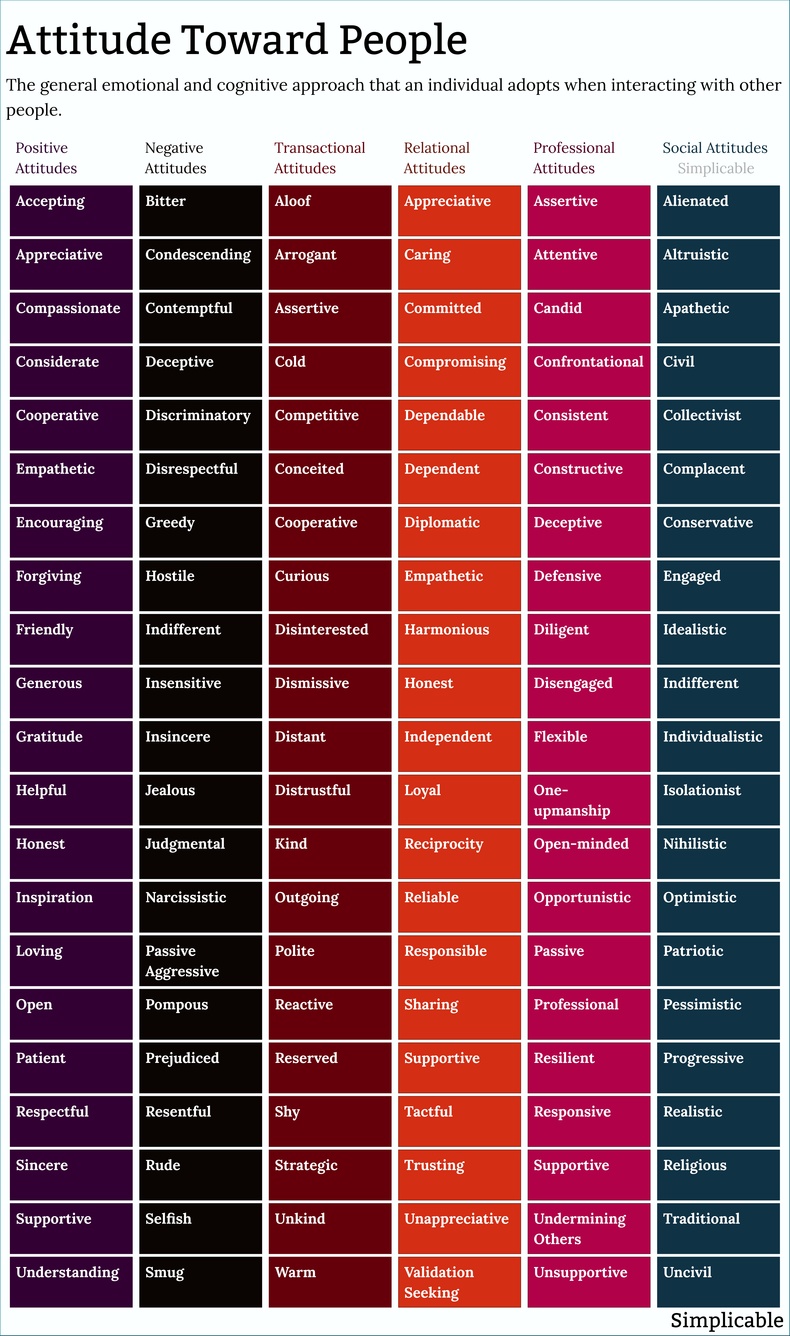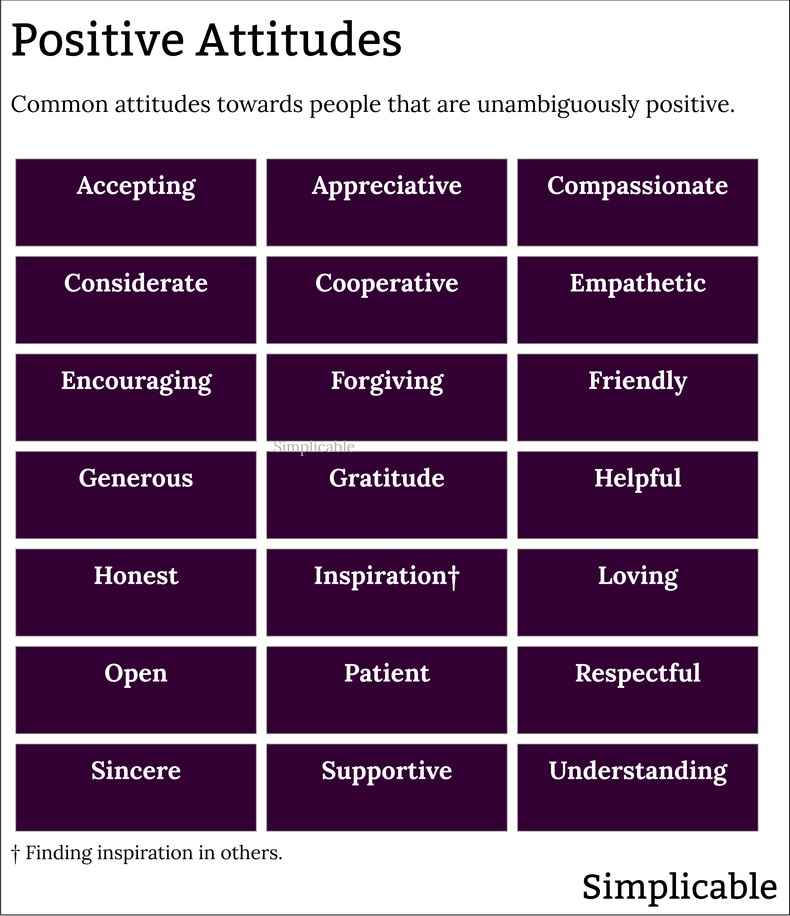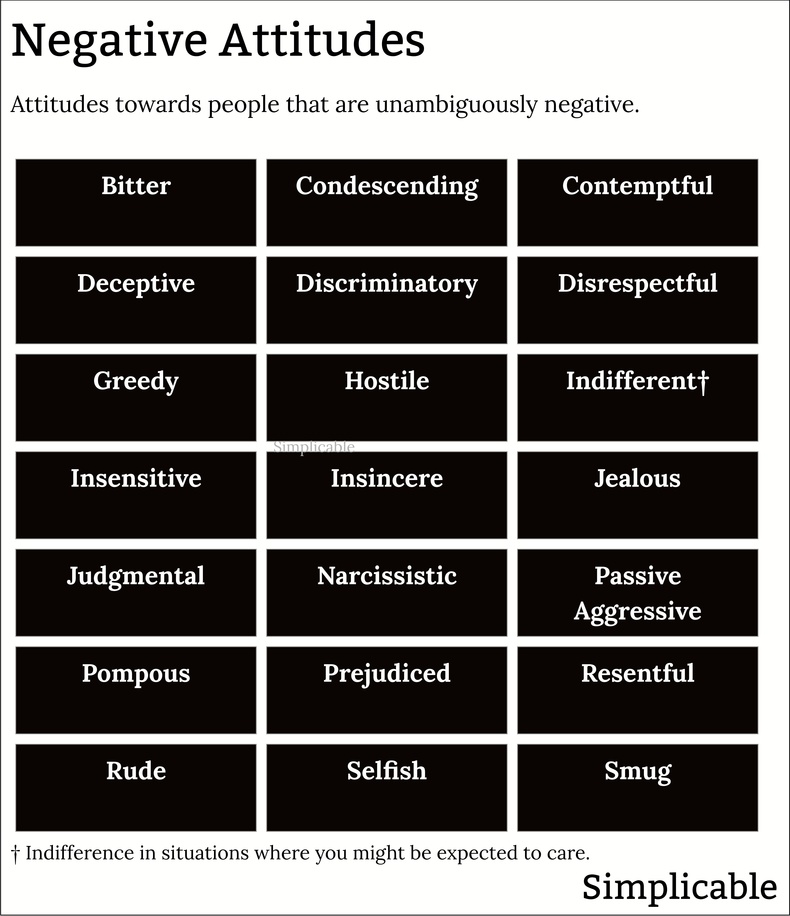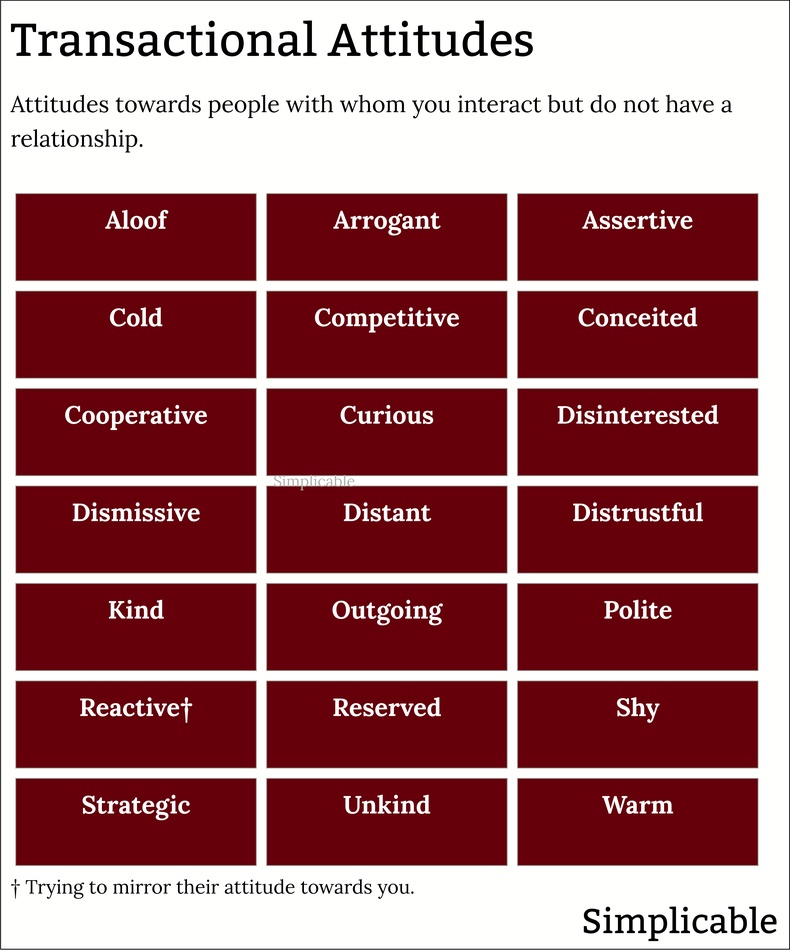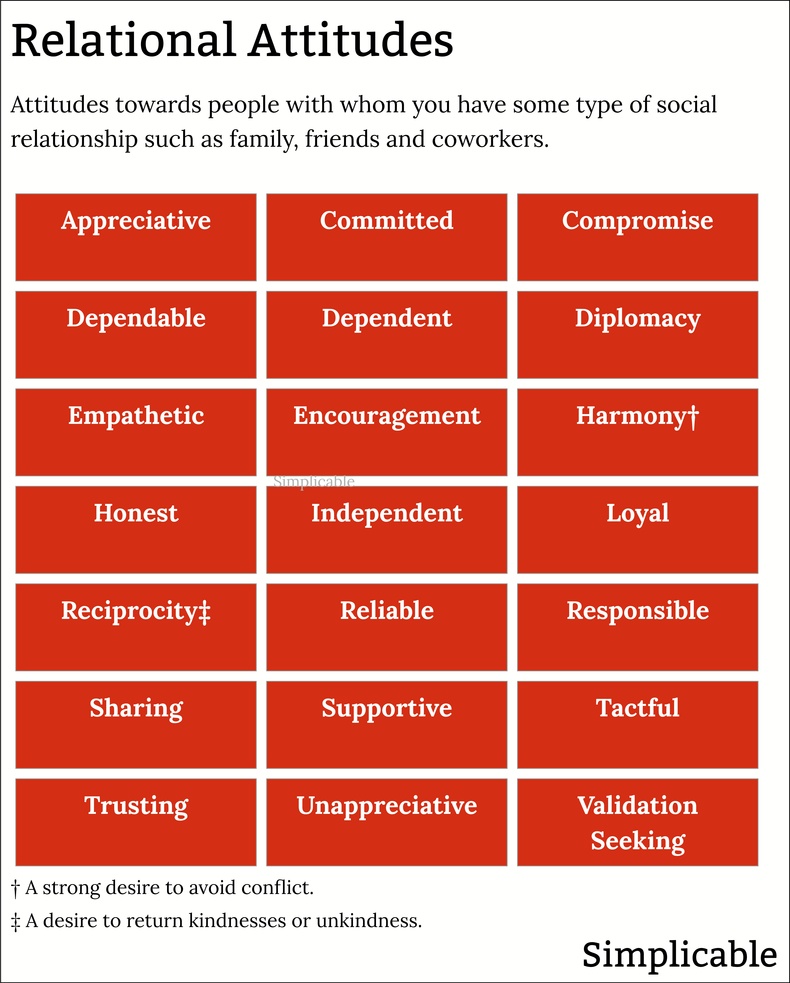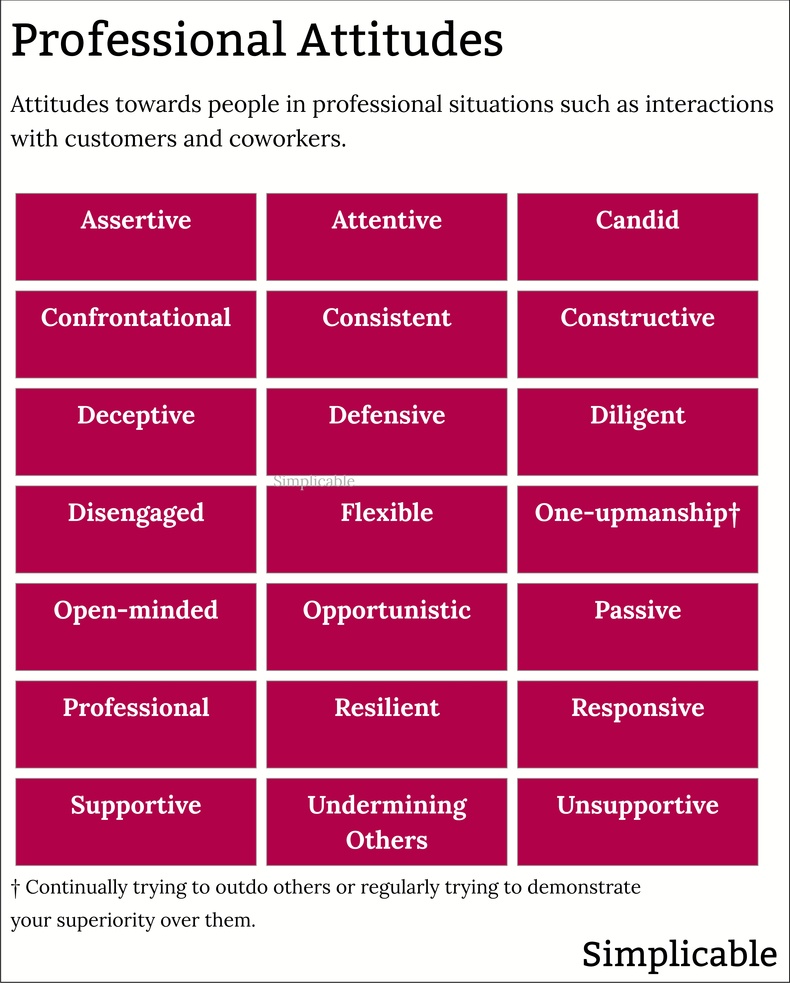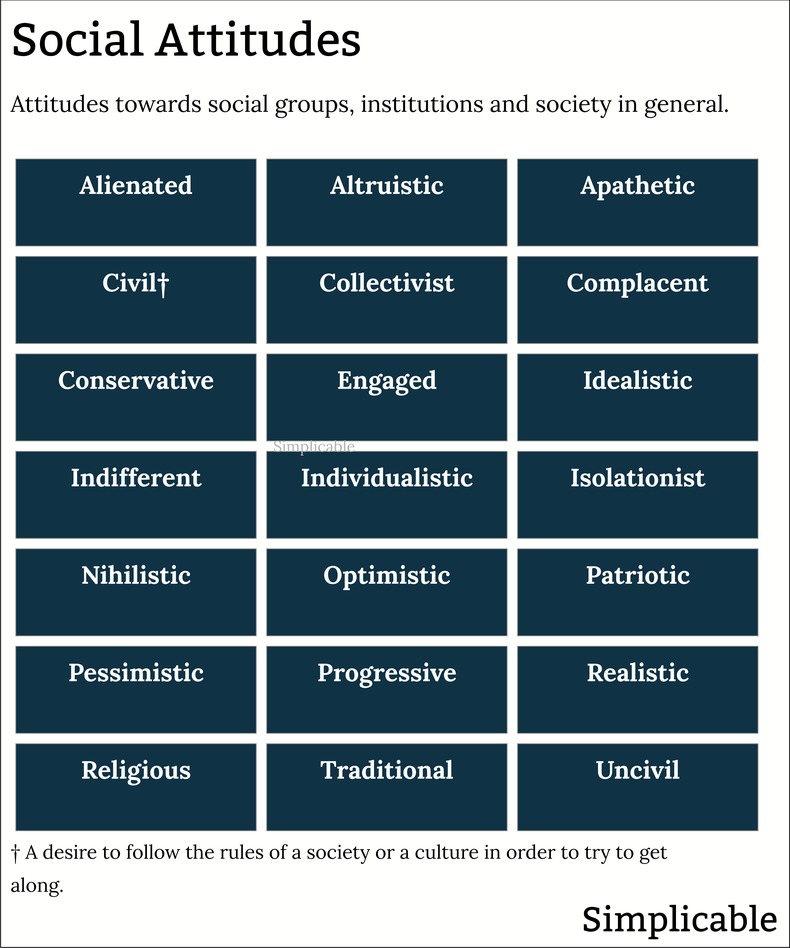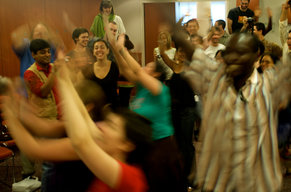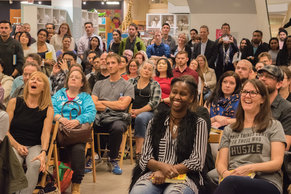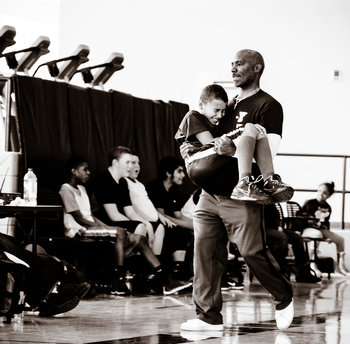|
| |
An attitude toward people is the general emotional and cognitive approach that an individual adopts towards another person. These are situational and are influenced by a large number of factors such as mood, perceptions, social context and relationships. The following are common attitudes toward people.
Positive AttitudesPositive attitudes such as treating others with respect. This can include mature attitudes that aren't always easy to maintain such as being forgiving and understanding. Negative AttitudesNegative emotions such as contempt or jealousy that you feel towards someone. Negative attitudes towards people can also be behavioral approaches such as a passive aggressive attitude whereby you try to undermine someone without technically doing anything wrong.Transactional AttitudesA man’s character is most evident by how he treats those who are not in a position either to retaliate or reciprocate.
~ Paul Eldridge Transactional attitudes are your approach to people with whom you have no relationship. This can mean that there are little repercussions if you treat someone poorly. Treating others with respect and kindness even when you may never see them again is a hallmark of virtue whereby you aren't just adopting kind attitudes towards others for your own benefit.Relational AttitudesAttitudes your adopt towards others with whom you have some type of relationship such as family, friends or classmates. In a collectivist culture, people value group harmony and may adopt very different attitudes towards people with whom they have a relationship. This is perhaps a common element of the human condition whereby we must be most careful in our attitude towards others who play some type of role in our lives. Professional AttitudesAttitudes an individual adopts towards others in a professional context. This is usually viewed as a relational attitude whereby customers, coworkers and partners are viewed as being types of relationship. Professional situations can involve intensive competition such as office politics and stressful situations such as dissatisfied customers. This can result in attitudes designed to outcompete others or cope with stressful social situations.Social AttitudesYour attitudes toward society in general. This is likely to tinge how you will view and treat other people. For example, an individualist who feels free to speak their mind and be themselves without fear of social repercussions or a collectivist who is careful to try to preserve group harmony with politeness such as saving face. Next: Social Attitudes
Social Attitudes
This is the complete list of articles we have written about social attitudes.
If you enjoyed this page, please consider bookmarking Simplicable.
© 2010-2023 Simplicable. All Rights Reserved. Reproduction of materials found on this site, in any form, without explicit permission is prohibited.
View credits & copyrights or citation information for this page.
|
